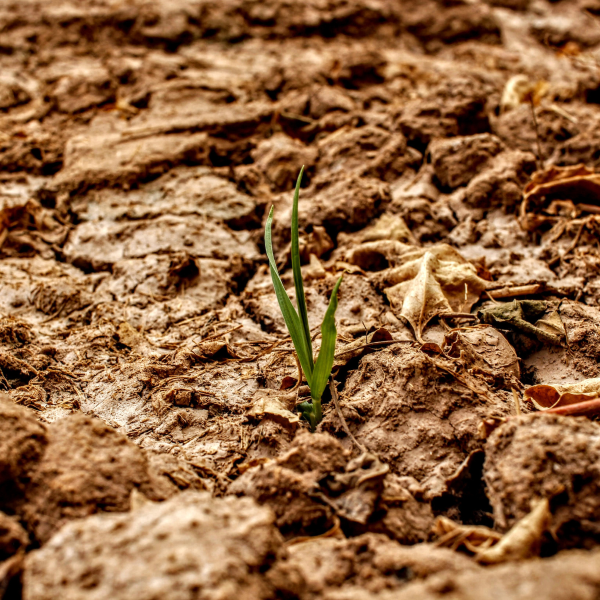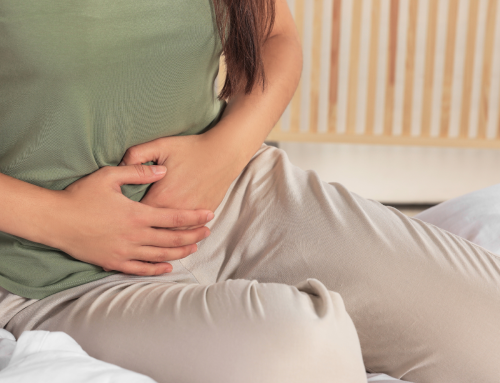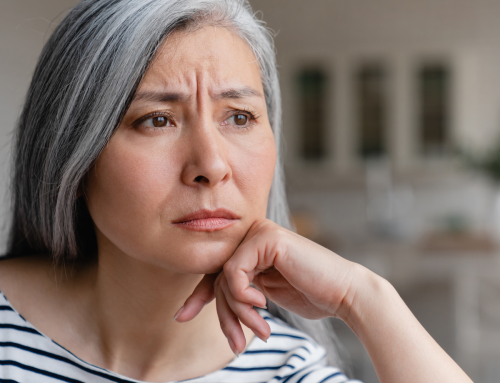
As women age, they go through a number of physical and hormonal changes. In their late 40s and early 50s, most women experience menopause – a natural process that marks the end of their reproductive years. Menopause is associated with a host of physical symptoms, including hot flashes, night sweats, mood swings, weight gain, and vaginal dryness. It can be uncomfortable, painful, and disrupt a woman's sexual and personal life. While many women don't know what to do or feel awkward discussing the matter, it's essential to understand that it happens to almost all women going through menopause. This blog post delves deeper into the link between vaginal dryness and menopause, exploring the causes, symptoms, and treatment options for this common menopausal symptom.
To answer the question of whether there's a link between vaginal dryness and menopause, it's best to understand the biological changes that happen within the body during this time. When a woman is in her 40s or 50s, the ovaries start producing less estrogen. Estrogen is responsible for keeping the vagina moist, and without it, the vaginal walls become thinner, less elastic, and drier. The hormonal changes can also affect the number of lubricating glands in the vagina, which can cause decreased lubrication, leading to vaginal dryness.
Another factor that contributes to vaginal dryness is aging. As we age, the body produces less fluid, making it harder to stay moist and lubricated. It's not uncommon for postmenopausal women to experience a loss of vaginal muscle tone leading to prolapse, which can lead to physical discomfort, worsen stress incontinence and increase the risk of infection.
There are also other factors that can contribute to vaginal dryness include medications, such as antihistamines and antidepressants, cancer treatments, breast-feeding, douching, and smoking. Stress, anxiety, and depression can also cause hormonal imbalances that may trigger vaginal dryness.
Managing vaginal dryness can be challenging, and women may find it uncomfortable to discuss this with their doctor or gynecologist. But it's essential to know that there are remedies for this common symptom. The first step is acceptance, acknowledge that this is a common symptom that can be treated and managed. Then, practice good vaginal hygiene, such as washing the area daily with mild soap, wearing breathable cotton clothing, and avoiding irritants such as douches, perfumed tampons, or pads.
Additionally, certain lifestyle changes can also help reduce the symptoms of vaginal dryness. Drinking plenty of water, quitting smoking, avoiding douching, and reducing stress can all contribute to healthier vaginal tissues and better sexual health. Engaging in regular sexual activity or using vaginal dilators can also help improve vaginal elasticity and lubrication.
Many professionals will advocate for other options, such as over-the-counter lubricants and moisturizers or vaginal estrogen therapy. These products can help enhance vaginal lubrication and reduce dryness during intercourse or directly apply creams to the vagina. While this can help restore vaginal moisture and alleviate symptoms of dryness, itching, or pain, V-Health offers an alternative treatment that doesn't just treat the symptoms but offers lasting results. V-Health is a treatment using secreted messengers (Human Growth Factors) from stem cells that tell cells what to do. The formula contains the exact type of growth factors that are found naturally in the body and in the right amount for optimum results. V-Health has been clinically tested and found to significantly improve the main measures of vaginal health and increase hydration.
Vaginal dryness is an unpleasant symptom that can affect women of any age, but it's a common symptom that occurs during menopause. Many women feel uncomfortable discussing this with their doctors, but it's essential to know that there are treatment options available. Practicing good vaginal hygiene, changing lifestyle habits, and natural remedies can all help alleviate vaginal dryness and improve sexual health. And don't forget to consider V-health! It's time to take control of this symptom and enjoy your life!






